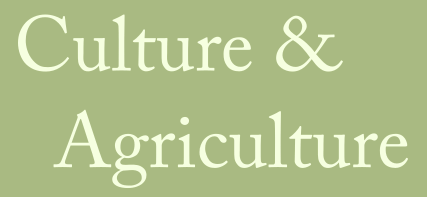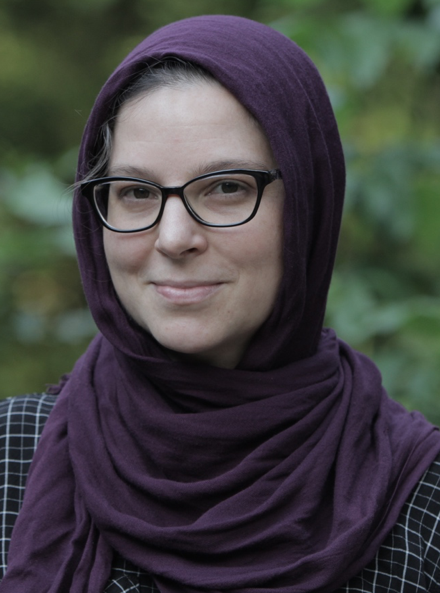Meet the Advisory Board
Sensorium submissions are reviewed by the Editor-in-Chief and another member of the Sensorium Advisory Board based on their expertise and/or interest in a given submission's topic(s). Our aim is to engage in a collaborative editorial review process leading to publication on the Sensorium page. If interested in joining the Advisory Board, contact Mark Anthony Arceño.
Sarah Franzen, Ph.D.
Sarah is an Assistant Professor in the Department of Geography and Anthropology and an Affiliated Faculty in African And African American Studies at Louisiana State University. Her research broadly focuses on the diverse ways of knowing embedded in practices associated with farming and how these practices can be used to retain culture, foster environmental relationships, build institutions, or create social change. In her research, Sarah uses film as a tool to better understand the tacit, embodied, affective, and sensory aspects of these practices. Sarah has worked extensively with African American farmers and farm cooperatives as a researcher, filmmaker, and participant.
Areas of interest: visual anthropology, race, property, kinship, agriculture, and cooperative development
Mark Anthony Arceño, Ph.D. (Editor in Chief)
Mark Anthony is the Academic Program Coordinator in the Department of Comparative Studies at The Ohio State University. A food and environmental anthropologist, his research agenda centers on the confluence of food, place, and identity, and how relationships among them change in times of change (climatic or otherwise). Utilizing multisensory and multispecies approaches, Mark Anthony's dissertation on terroir and the taste of place in central Ohio and Alsace, eastern France, illustrates how winegrowers in both regions understand and respond to changes in their respective landscapes. Mark Anthony’s previous work includes research on symbolic and material dimensions of food-based dietary guidelines; food programming in liberal arts settings; and religious, ethnic, and linguistic identity in South Africa.
Areas of interest: Actor-Network Theory; adaptations/responses to climate change; anthropology of food; cultural theory; geographical indications; identity development and expression; landscape anthropology; (multi)sensory ethnography; multispecies ethnography; sense of place; social-ecological systems; terroir studies; vine-to-wine
Amanda Hilton, Ph.D.
Amanda is an environmental anthropologist who focuses on food systems, drawing on political ecology, critical heritage studies, and the anthropology of the senses. She received her Ph.D. in sociocultural anthropology from the University of Arizona in 2020. Amanda's dissertation, Selling or Saving Cultural Heritage? Sicilian Protected Geographical Indication Extra-Virgin Olive Oil, examines the motivations for and impacts of a recent geographical indication for extra-virgin olive oil from the Italian island of Sicily. This research examines the tensions between economic development and cultural commodification amongst Sicilian olive oil producers in a context of increasing economic and cultural globalization, historical poverty, and environmental change. Amanda's geographical areas of interest include: Sicily, Italy, and the Mediterranean; and the US Southwest and West--where she has been fortunate to work on participatory applied anthropological projects.
Areas of interest: Environmental anthropology, anthropology of food, political ecology, ethnobotany, Geographical Indication and other third-party certification systems, cultural heritage and preservation/patrimonializzazione, place identity, sacred places, multispecies studies, social and environmental justice, collaborative anthropology, creative methodologies
Cymene Howe, Ph.D.
Cymene is Professor of Anthropology at Rice University. Her books include Intimate Activism (Duke 2013) and Ecologics: Wind and Power in the Anthropocene (Duke 2019), which follows the human and more-than-human lives intertwined with renewable energy futures. She is co-editor of The Johns Hopkins Guide to Critical and Cultural Theory and Anthropocene Unseen: A Lexicon (Punctum 2020). Her current research on cryohuman relations examines the changing dynamics between human populations and bodies of ice in the Arctic region and sea level adaptation in coastal cities around the world. She co-produced the documentary film Not Ok: A Little Movie about a Small Glacier at the End of the World (2019) and initiated the installation of the world’s first memorial to a glacier fallen to climate change. The Okjökull memorial event in Iceland served as a global call to action and in memory of a world rapidly melting away.
Areas of interest: Anthropocene and Climate Change; Environment and Energy; Anthropology of the Elements; More-than-Human Studies; Neomaterialisms; Feminisms and Queer Theory; Media and Social Movements; Experimental Ethnographic Forms; Collaborative Practice
Marissa Shaver, Ph.D.
Marissa is adjunct faculty at Salt Lake Community College. She is an environmental anthropologist who researches natural resource extraction projects within the context of globalization and development. Her work focuses on how spatial attributes - both “natural” and “built”- and place-based relationships are components of these projects. She conducts research in Punta Abreojos, a fishing village in Baja California Sur, Mexico. Her research attends to multi-sensory experiences people have of their environments to be able to address both the sociocultural and material aspects of place and to destabilize the Western fascination with vision in order to take seriously the role of the other senses in informing how humans engage with and understand their environments. Marissa’s current research examines how additional stakeholders - government agencies, conservation groups, and developers - of Punta Abreojos’s coastal environment understand and conceive of this space. She is paying particular attention to the ways in which power that accompanies both global capital and conservation influences the different stakeholders' conceptualizations of this ocean space and their management approaches to it.
Areas of Interest: Space and place, globalization and development, sensory studies, political ecology, phenomenology, materiality, museums and object studies, applied/collaborative anthropology, and ethnographic methodologies
Nick Kawa, Ph.D.
Nick is an Assistant Professor in the Department of Anthropology at The Ohio State University and a core faculty member of Ohio State’s Initiative for Food and Agricultural Transformation (InFACT). His research examines how human-produced excesses—bodily, agricultural, and industrial—have come to shape the ecologies of the Anthropocene, both in Amazonia and the American Midwest. His latest project specifically investigates the use and management of biosolids (i.e. treated sanitation waste) for agricultural production and urban gardening in the contemporary US. Through this project, he is collaborating with colleagues in architecture, landscape architecture, and the arts to develop interactive demonstration gardens and installations that engage questions and controversies surrounding the contemporary management of (human) bodily waste.
Areas of interest: plants, soils, waste, the Anthropocene, Amazonia, United States






